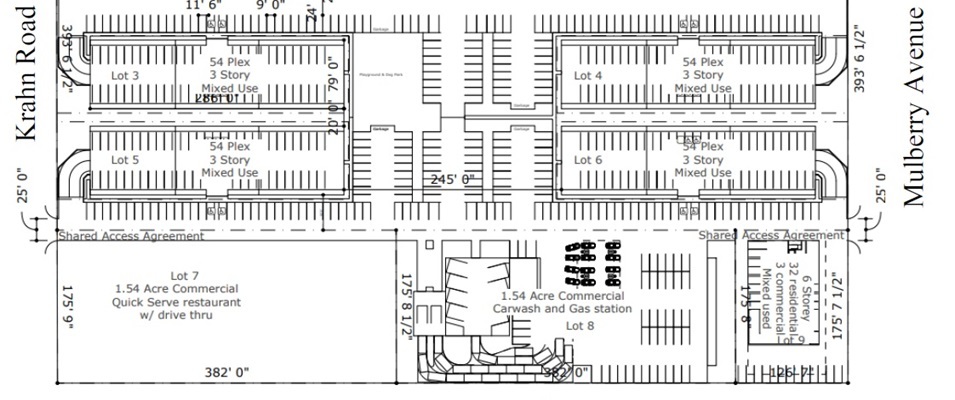The fact that Niverville is one of the fastest growing communities in Manitoba is not new information. However, the rate of expansion might be. According to Niverville’s mayor, Myron Dyck, our population has grown by roughly 200 new residents per year, over the past few years.
This growth, coupled with the fact that many young couples are starting and growing families, means the current schools are crowded. With about 1,000 students enrolled, temporary classroom huts have been pressed into service.
Niverville has two schools, both English-speaking. In fact, the Hanover School Division is one of the only divisions in Manitoba that doesn’t currently offer French immersion.
However, a few towns near Niverville do. École Héritage Immersion in St.-Pierre-Jolys even buses students from Niverville and the surrounding area.
“I am very grateful for the busing [as] my daughters get picked up in Niverville and dropped back off,” says Adam Wiebe, a single dad who sends his two daughters there. “Without that as a possibility, I’d have no way of getting my daughters to and from school.”
The demand for sending children to French immersion has never been higher. In Manitoba, it’s up 19.3 percent in the last five years—and more and more Niverville parents seem to want this option for their children.
Lindsay Unrau is one of those parents. “The busing situation isn’t ideal. Our kids are on the bus for two hours a day. Mornings are always rushed with a 7:27 a.m. pick-up time (which is better than previous years when it was once 7:10 a.m.), with the bus returning about 4:30 p.m.”
Unrau says that knowing a second language, especially in bilingual Canada, has its advantages. “We wanted to afford our children every opportunity available for a successful future. Many opportunities here in Manitoba are often based on whether you can speak both official languages.”
Niverville’s former mayor Greg Fehr also sends his kids to French immersion. “Any immersion program, whether it’s French, German, or Ukrainian immersion, opens
you up to the fact that the world is bigger than just the culture that you know.”
As of right now, 137 students living within the Hanover School Division go to surrounding towns to take advantage of French immersion programs. Most of those students live in Niverville, roughly 120.
Building a new school, wherever that might be, is always a big undertaking and has to be approved and funded by the government.
“The province of Manitoba is reactive, not proactive, when it comes to building new schools,” says Mayor Dyck. “They say if a school can hold 400 students, then one needs to have 400 students in huts before they will consider building a new school. So if NCI has about 400 capacity and NES has 400 capacity and 200 students are in huts, that means that Niverville requires another 200 children in huts. Looking at the demographics, there are about 50 to 60 students per grade at NCI, with numbers in the 80 to 90 children per grade at NES. So simply put, once the children at NES start to populate the NCI, and provided that those parents with preschool children place them at NES, then Niverville could soon have 1,200 students in the K–12 classrooms. So you can see when 100 (plus) students are leaving for French immersion, that would be closer to 1,100.”
If Niverville is in need of a new school regardless, and French immersion is an option many
parents are already looking for, why not build a French immersion school in Niverville?
“The biggest driver of it, from my understanding, is the public,” says Fehr. “There would need to be a community champion who is for French immersion. You also need a petition signed by at least twenty parents. Once you have this, it has to go to the Minister [of Education]. It’s part of guaranteeing those francophone rights.”
Currently, the elementary school is in the process of building an addition which will make room for five more classrooms.
“The Hanover School Division and [Niverville] Town Council have been lobbying the province hard for a new school for the past three years,” says Dyck. “Each year, the HSD is asked for their number one priority, as far as new schools are concerned, and Niverville has been the one they have said needs to be next.”
If this new school were to be French immersion, it would bring back most, if not all, of the students attending elsewhere right now. Without exception, all of the parents interviewed for this article said they would definitely send their kids to school in Niverville if the option existed.
As for what French immersion would do for the community, Dyck says, “Pros would be having both official languages available for our community, parents wouldn’t have to have their kids on a bus for parts of the day, and having people move to our community or stay in our community who desire to have this service. I’m not sure of any cons.”
There are no concrete plans in place for a new French immersion school right now. But Bob Wiebe, Communications Manager of
HSD, has said that the division has hired a consultant to explore the issue further. The consultant they have hired has prior experience implementing French immersion schools.
“We have asked the consultant to review all aspects of creating a French immersion school, to look at all the variables such as enrollment, staffing requirements, space requirements, and grade offerings,” says HSD Superintendent Randy Dueck.
As of right now, the division has to give up funding that is available for French programs and schools, but bringing an immersion program to Niverville would put that money back into our communities.
A well-informed decision, based on the consultant’s analysis, is expected to be made by the end of June this year.



















